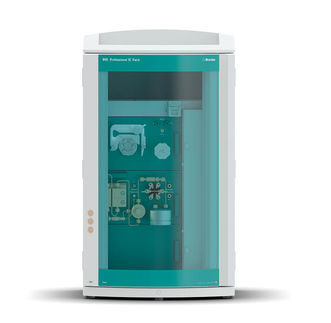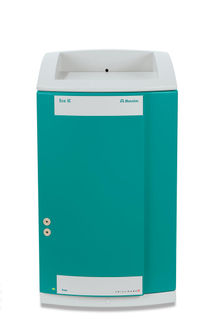Name of Symptom/Sign:
Parosmia
Classifications and external resources
| ICD-10
| R43.1
|
| ICD-9
| 781.1
|
Parosmia is a distorted sense of olfaction, often resulting in phantom, non-existent, and mostly unpleasant, smells.
Parosmia is a disorder of sense of smell when an odour is actually present, but incorrectly perceived, so this disorder is different than phantosmia. Unexplained unpleasant smells are basic symptoms of this disorder. The smell can be something like burning flesh, fish, vomit, or garbage. This disorder can be caused by cold or accidental damage to the olfactory system.
| Symptoms and signs (R00-R69, 780-789) |
|---|
Circulatory and
respiratory systems | Tachycardia - Bradycardia - Palpitation - Heart murmur - Epistaxis - Hemoptysis - Cough - abnormalities of breathing (Dyspnea, Orthopnoea, Stridor, Wheeze, Cheyne-Stokes respiration, Hyperventilation, Mouth breathing, Hiccup, Bradypnea, Hypoventilation) - Chest pain - Asphyxia - Pleurisy - Respiratory arrest - Sputum - Bruit/Carotid bruit - Rales |
|---|
| Digestive system and abdomen | Abdominal pain (Acute abdomen) - Nausea/Vomiting - Heartburn - Dysphagia - flatulence and related (Abdominal distension, Bloating, Burping, Tympanites) - Fecal incontinence (Encopresis) - hepatosplenomegaly (Hepatomegaly, Splenomegaly) - Jaundice - Ascites - Fecal occult blood - Halitosis |
|---|
| Skin and subcutaneous tissue | disturbances of skin sensation (Hypoesthesia, Paresthesia, Hyperesthesia) - Rash - Cyanosis - Pallor - Flushing - Petechia - Desquamation - Induration - Diaphoresis |
|---|
Nervous and
musculoskeletal systems | abnormal involuntary movements (Tremor, Spasm, Fasciculation, Athetosis) - Gait abnormality - lack of coordination (Ataxia, Dysmetria, Dysdiadochokinesia, Hypotonia) - Tetany - Meningism - Hyperreflexia |
|---|
| Urinary system | Renal colic - Dysuria - Vesical tenesmus - Urinary incontinence - Urinary retention - Oliguria - Polyuria - Nocturia - Extravasation of urine - Extrarenal uremia |
|---|
Cognition, perception,
emotional state and behaviour | Anxiety - Somnolence - Coma - Amnesia (Anterograde amnesia, Retrograde amnesia) - Dizziness/Vertigo - smell and taste (Anosmia, Ageusia, Parosmia, Parageusia) |
|---|
| Speech and voice | speech disturbances (Dysphasia, Aphasia, Dysarthria) - symbolic dysfunctions (Dyslexia, Alexia, Agnosia, Apraxia, Acalculia, Agraphia) - voice disturbances (Dysphonia, Aphonia) |
|---|
| General symptoms and signs | Fever (Hyperpyrexia) - Headache - Chronic pain - Malaise/Fatigue (Asthenia, Debility) - Fainting (Vasovagal syncope) - Febrile seizure - Shock (Cardiogenic shock) - Lymphadenopathy - Edema (Peripheral edema, Anasarca) - Hyperhidrosis (Sleep hyperhidrosis) - Delayed milestone - Failure to thrive - Short stature (Idiopathic) - food and fluid intake (Anorexia, Polydipsia, Polyphagia) - Cachexia - Xerostomia - Clubbing |
|---|
|







